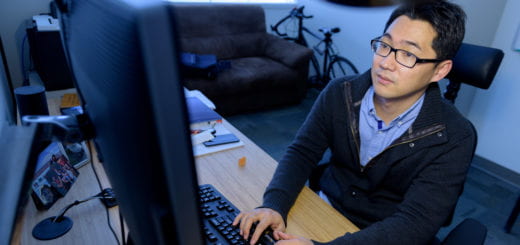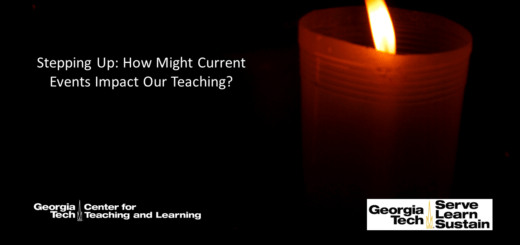IncludingU: Creating Accessible Classes with the Help of Tools for Life
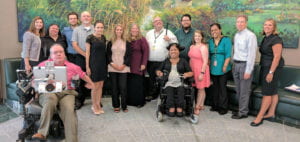
The knowledgeable, helpful staff and collaborators at Tools for Life.
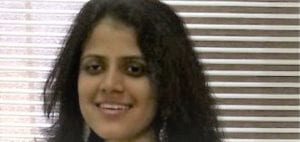
Aditi Shah is a graduate student in Georgia Tech’s Cybersecurity program.
“Take a look at this graph” seems like a reasonable directive in an applied math class, but for Aditi Shah, a graduate student in Georgia Tech’s Cybersecurity program, such tasks pose a problem. Having lost her vision to a degenerative eye condition, Aditi commonly finds herself in environments and circumstances which clearly were not designed for people who have a disability. Sometimes she struggles with getting accessible class materials or transcribed notes in a timely manner, and this can be especially challenging when she is preparing for an exam. She does feel fortunate to have had a few professors who are sensitive to her needs. One faculty member in particular receives high praise from Aditi. “He takes time to thoroughly describe what he puts on the board, and his background in [Human-Computer Interaction] helps him be more aware of [making his teaching] user-centered.”
Aditi’s experiences highlight the need for creating a more accessible classroom. Considering the needs for diverse abilities in the classroom is an essential part of being an effective instructor, and Tools for Life (TFL) is one of the resources that can help faculty and teaching assistants accommodate diverse needs. TFL is part of the Center for Inclusive Design and Innovation (CIDI) on Georgia Tech’s campus. Under the Assistive Technology Act of 2004, each state must designate federal funds toward providing access to assistive technology to individuals with a documented disability. TFL serves as the assistive technology provider for the entire state of Georgia. Fortunately for the Georgia Tech community, TFL’s offices are located conveniently behind the former Engineer’s Bookstore.
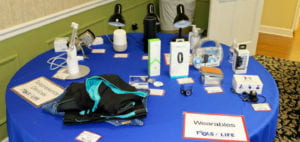
Some of the assistive devices used by TFL clients include wearables and voice-activated technologies.
TFL works with people of various ages and abilities to help them acquire technology devices to support success in their educational, professional, and personal lives. In addition to offering direct services to people who have different abilities, TFL can be an invaluable resource for instructors. Instructors can find information on classroom technologies – hardware, software, websites, and applications – through TFL’s programs and services. For example, a webinar on creating accessible documents demonstrates how to exploit features on Microsoft Word. These features can improve readability for a wider range of people by allowing organizational document structures and the insertion of alternative texts. There is also a lending library that makes available items, such as ergonomic keyboards and screen readers, so users can try new technology before investing in a piece of equipment or software. Through TFL’s sister initiatives under CIDI, Georgia Tech faculty, staff, and students can request Braille services, audio and video captioning, print conversions to e-text, website accessibility assessments, and other technical assistance and support.
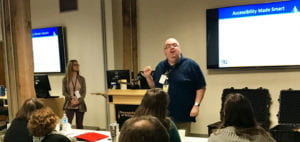
Sam Peters and Danny Housley from Tools for Life co-facilitate a workshop.
TFL’s trainings also address using appropriate language and fostering tolerance, empathy, and sensitivity to diverse experiences. Instructors who have never taught a student with different abilities often feel uncomfortable because they lack the confidence that they can successfully address the student’s needs. Instructors might require new skills and understanding to better communicate with someone who is differently abled. TFL staff can help faculty and TAs gain those skills and knowledge by sharing best practices and teaching strategies, as well as dispelling common misconceptions about different abilities.
TFL’s awareness of issues around diverse abilities and their expertise on assistive technology can contribute to the accessibility and inclusivity of any classroom. For Aditi, an accessible class experience happens “when [she doesn’t] have to put in more effort than other students.” With the help of TFL, instructors can make that equitable learning experience possible.
Learn more about Tools for Life and the Center for Inclusive Design and Innovation on their websites.
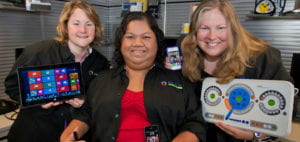
Martha Rust, Liz Persaud, and Carolyn Phillips hold their favorite assistive technology in the Tools for Life Assistive Technology Demo Lab. They love their jobs!



